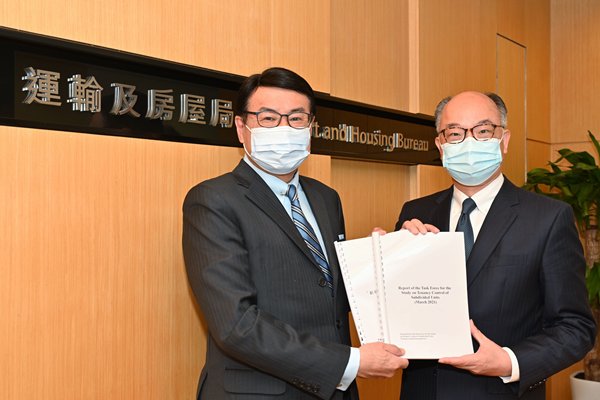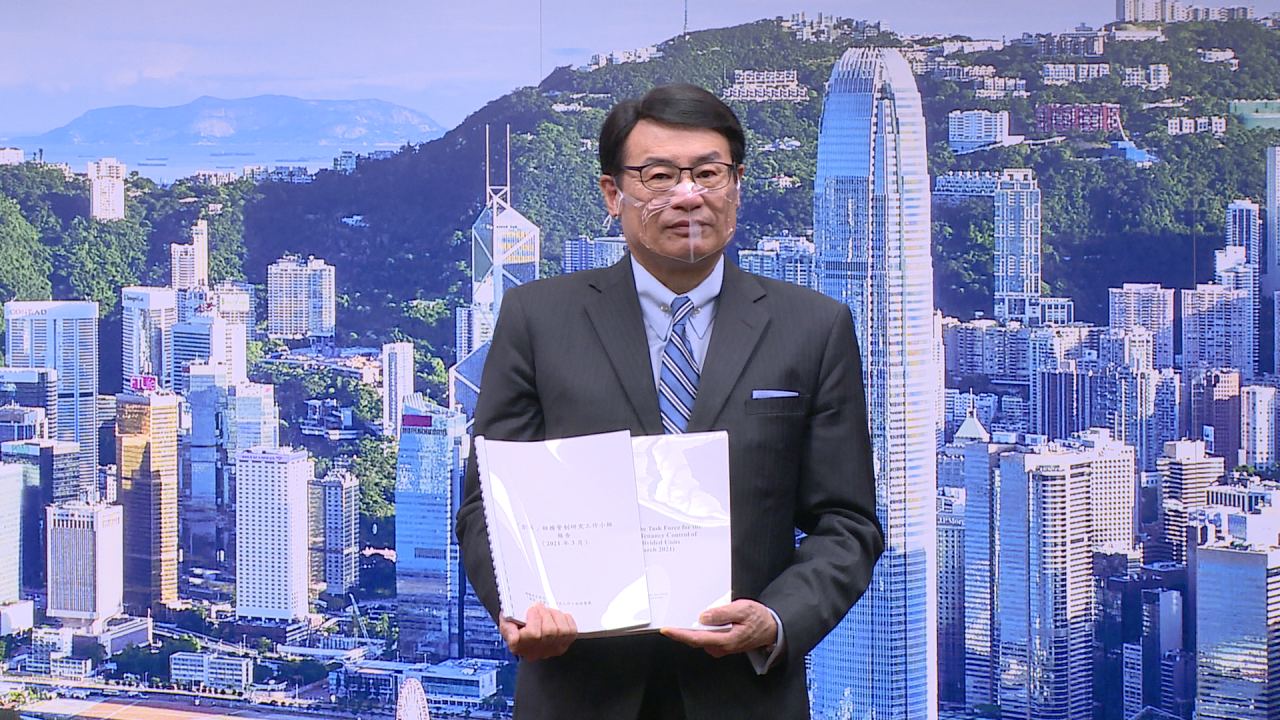Subdivided units report submitted
(To watch the full press conference with sign language interpretation, click here.)
The Task Force for the Study on Tenancy Control of Subdivided Units submitted its report to the Government today, recommending the Government to implement tenancy control measures on subdivided units (SDUs) effected through legislation.
The Government said it would carefully consider the recommendations put forward by the task force and introduce the relevant bill into the Legislative Council as soon as possible within the current legislative session.
Secretary for Transport & Housing Frank Chan thanked the task force for conducting a comprehensive, in-depth and professional study on the issues relating to tenancy control on SDUs in Hong Kong and for advancing the study's completion and submission of the report to the Government by three months in view of the public's concerns about the subject.
Outlining the report at a press conference this afternoon, the task force’s Chairman Prof William Leung said it proposed to formulate a "standard tenancy agreement" with mandatory terms.
These include the term of a regulated tenancy shall be fixed for two years and the rent cannot be increased during the tenancy period.
Only the tenant shall have the right to terminate the tenancy agreement after 12 months into the tenancy by giving one month's notice to the landlord.
The tenant shall not be liable to make payment to the landlord other than the rent, deposit and reimbursement of utility charges as apportioned by the landlord.
The task force also recommended the Government should mandate the signing of a written tenancy agreement at the outset.
As a deterrent, a landlord of a regulated tenancy may commit an offence and be subject to penalties if they request the tenant to make payments other than for the rent, deposit and utility charges as apportioned by the landlord.
On security of tenure, the tenant of a regulated tenancy shall have the right to renew the tenancy once, thus enjoying four years of security of tenure.
On tenancy renewal, there shall be a cap on the rate of rent increase, which shall not be more than the percentage change of the private domestic rental index (all classes) of the Rating & Valuation Department (RVD) in the relevant period or 15%, whichever is the lower.
If the relevant change of the RVD rental index is negative, the rent of the renewed regulated tenancy shall be decreased by at least the same percentage.
Prof Leung said the proposal balanced the interests of the tenants and landlords.
“Regarding the cap on the rate of rent increase on tenancy renewal, I must reiterate that 15% is not the increased rate of rent we proposed. We are proposing that the market follow the residential rental index provided by the Rating & Valuation Department.
“What we are trying to do is balance the interest of tenants and landlords.
“If the private housing market is talking about a rent increase of 40%, and yet we only allow the landlords to increase rent by 2%, then that is not fair. And that scenario is going to invite challenges.”
Click here for the report.

